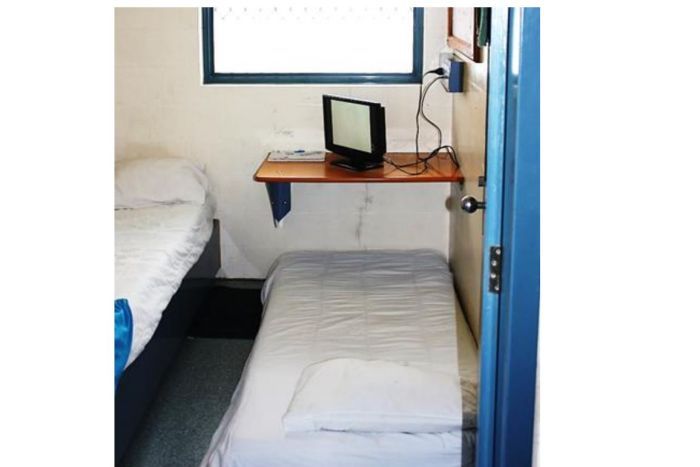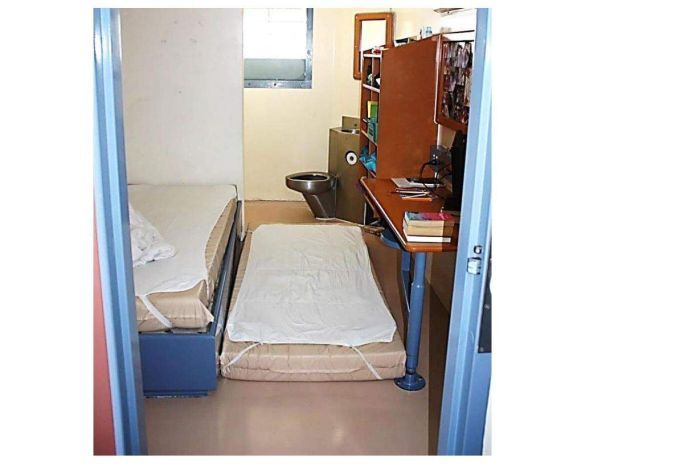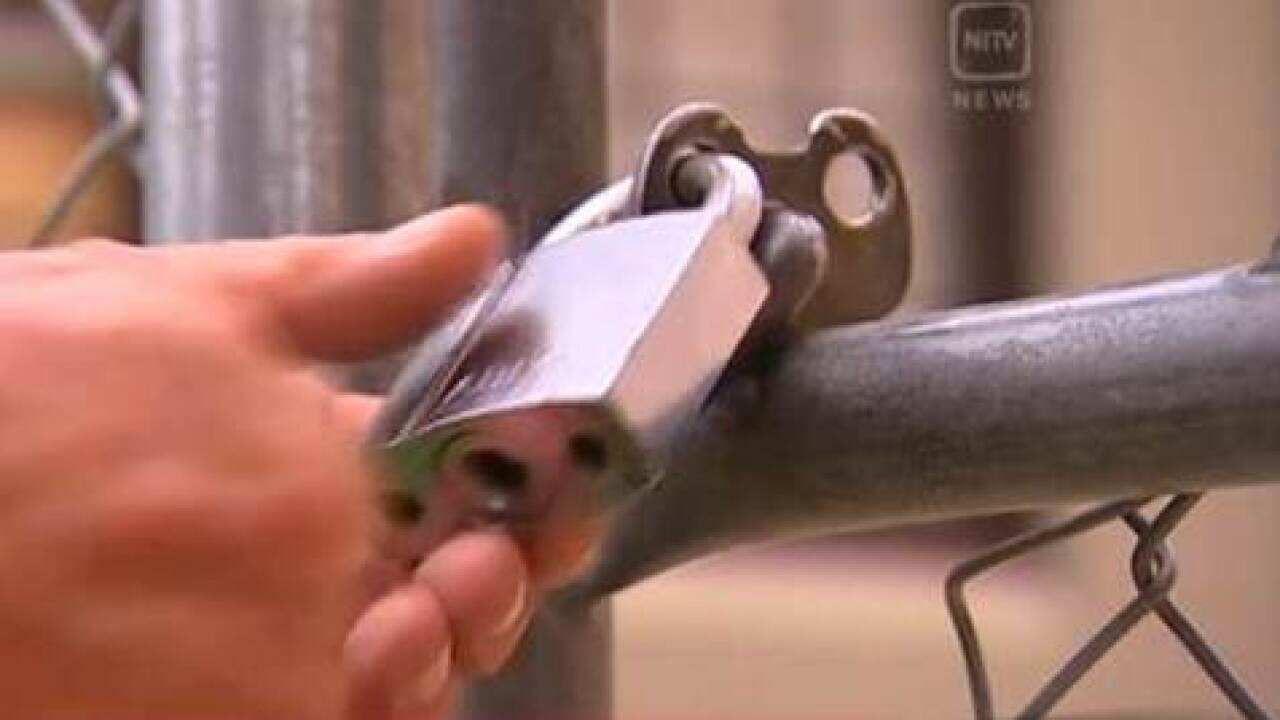Key points:
- Brisbane Women's Correctional Centre named Queensland's most overcrowded prison
- Centre held up to 151 prisoners over capacity
- Prisoners forced to share 8.4-square-metre cells, sleep on mattresses on the floor
- Rates of self harm and attempted suicide rising at "alarming rate"
- QLD Corrective Services Minister "comfortable" with level of prisoner safety

Source: NITV News
Mr Clarke compiled a similar report in 2013, which wasn't made public, but says the majority of his recommendations weren't followed and the problem has become worse.
His latest report found that up to 300 women were sharing cells, with prisoners sleeping on a mattress on the floor close to an exposed toilet (prisoners were required to sleep with their head nearest to the toilet to allow for night checks by officers).
Two pregnant women complained they were required to sleep in such conditions.
"In one case, a prisoner was sleeping on a mattress on the floor of a doubled-up cell while she was pregnant and then immediately following her return from hospital suffering a miscarriage," Mr Clarke writes in his report.
Prison management says a system has since been put in place to ensure pregnant prisoners are accommodated in a bed.
The report also found:
- Two prisoners were locked in a single-person cell together in excess of 80 hours
- Prisoner-on-prisoner assaults have more than doubled over the past three years, from 54 to 122
- The number of self-harm incidents rose from 15 in 2012-13 to 83 in the last financial year, while attempted suicides jumped from 3 to 10 in the same period
- Prisoners weren't provided with adequate psychological services
- A lack of washing facilities has resulted in hygiene concerns
Minister 'comfortable' prisoners are safe
Queensland Corrective Services (QCS) Minister Bill Byrne says the state's prisoners are well-provided for.
"I am comfortable with the level of safety and the provision of services to Queensland prisoners," he says.
"Prisoners are well-accommodated, well-fed, supervised and looked after in a fashion that Queenslanders would expect."
The state government yesterday announced it would provide $1 million annually for a new reintegration program to help female prisoners transition back into their community, reducing the risk of reoffending.
Life inside the cell

Source: NITV News
Prisoners are generally locked in their cells around 6.20pm, and unlocked around 7.30am, therefore spending at least 13 hours a day in a cell together.
"Imagine living in your bathroom for 24 hours or 72 hours, and how unbearable it gets within a very short period of time," says Debbie Kilroy, CEO of Sisters Inside and first woman in Queensland to be admitted as a legal practitioner after being convicted of serious criminal offences.
In an interview with the state Obmudsman, QCS Commissioner Mark Rallings was asked whether the practice of "doubling up" in cells was likely to contribute to rising levels of self harm:
"I would imagine that it is less about double-up and more just about the environment - the noisy, crowded environment," he said.
"If they are very reactive because of a trauma history and they are in a constantly noisy, high stimulus environment, I suspect it overwhelms people's ability to cope."

Sisters Inside CEO says more prisons isn't the answer to fixing overcrowding in Queensland women's prisons. Source: NITV
More prisons 'not the answer'
The imprisonment rate of women in Queensland is the third-highest in Australia, with the female prisoner population rising faster than that of males.
Debbie Kilroy, however, says more the answer to solving overcrowding isn't building more prisons.
"Prison cells are like hospital beds - if you've got them, the courts will fill them," she says.
More than a third of prisoners at BWCC are on remand awaiting sentencing.
"We're talking about women who live in poverty, we're talking about homeless women, we're talking about high rates of Aboriginal and Torres Strait Islander women, we're talking about women who are victims of horrendous violence, we're talking about a high number of women with mental health issues and drug and alcohol addictions," Ms Kilroy says.
"Prison doesn't resolve their issues, and when you put them together in cells with no choice for long periods of time, conflict happens.
"We actually need to look at decarceration strategies: how to keep women out of the system... if they're in the system, how to get them out as soon as possible."
RELATED ARTICLE:

Female prisoners work together to overcome past trauma

